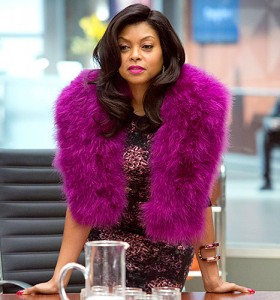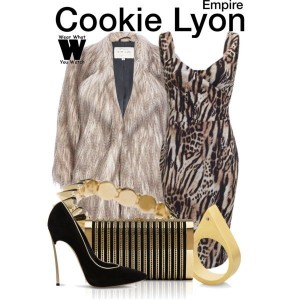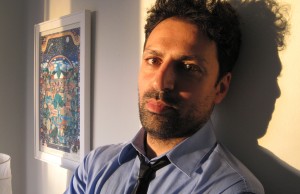You Want the Power But Not the Pain: Some Notes for White Women Who Love Cookie
By Desiree Adaway
 I am a woman that makes her living helping individuals, communities, and organizations have difficult conversations, specifically the most important conversation to have at this historical moment—the one about race, class, and gender. I help people have conversations about inequality, injustice, violence, and the effects on real people’s lives. The core of a difficult conversation is asking the hard questions. Hard questions may not lead to a definitive answer but having hard conversations unequivocally generates awareness about issues we prefer to ignore.
I am a woman that makes her living helping individuals, communities, and organizations have difficult conversations, specifically the most important conversation to have at this historical moment—the one about race, class, and gender. I help people have conversations about inequality, injustice, violence, and the effects on real people’s lives. The core of a difficult conversation is asking the hard questions. Hard questions may not lead to a definitive answer but having hard conversations unequivocally generates awareness about issues we prefer to ignore.
In light of the popularity of Empire, specifically the popularity of the drama among white viewers, I’d like to ask this hard question: What is up with white, upper middle class women’s obsession with Cookie?
I am an almost 50 year old black woman, and I have watched the show Empire. Once. I love how Lee Daniels and Taraji P. Henson have captured the attention of this country with a different type of story and style of storytelling. But the homophobic language, over the top drama, and rapping just don’t do it for me. Admittedly, I am not their demographic. And yet Cookie is a phenomenon among my white contemporaries.
Looking like Cookie has even become trendy. Publications like Bloomberg tell you “How to Dress Like Cookie From ‘Empire’ at Work, Every Day of the Week” and Glamour Magazine shows how to be Cookie for Halloween. Outlets which largely cater to white women, offer guides for looking like Cookie and conveying the spirit of the most popular female character on television, who knows how to be a Boss Bitch.
This white fascination, faux celebration of black characters gives the impression of awe, admiration, and anti-racism but actually feels very racist. Because the truth is this— “Cookies” are all around us, and those real life women are not celebrated at all.
In 2010, black women were more than three times as likely as white women to be incarcerated. So if white women want to meet Cookie, sadly she is easy to find. There are plenty of “Cookies” around them in real life that they pass on the street every day and never acknowledge. In fact many have met her and labeled her the “angry” black woman.
She has come to their places of employment trying to get hired. She has come to them praying to find housing for herself and her children. They have seen her in the grocery store using food stamps and judged her.
The reality is white women like the fantasy of Cookie but not the reality of her. They romanticize Cookie at the same time that institutional racism means that white women have HUGE social distance from actual women who share elements of Cookie’s story. You can love her from afar and never have to wonder how the life you live makes Cookie’s story possible.
 It appears that white women want to emulate her strength, her power, and her hustle, but they don’t want to acknowledge her pain, her struggle, and her strife. They don’t want her inability to vote or the constraints of probation. They admire her sass but not the anger that feeds it, and they often deny the persistence of the oppression that underlies who she is. Wanting to be like Cookie is the cultural appropriation of a lived experience, an insidious kind of Rachel Dolezal move.
It appears that white women want to emulate her strength, her power, and her hustle, but they don’t want to acknowledge her pain, her struggle, and her strife. They don’t want her inability to vote or the constraints of probation. They admire her sass but not the anger that feeds it, and they often deny the persistence of the oppression that underlies who she is. Wanting to be like Cookie is the cultural appropriation of a lived experience, an insidious kind of Rachel Dolezal move.
More and more I see a certain class of people and mostly white folks invoking the struggles of others to show that they are “badasses.” They post her quotes on Facebook to describe their bad days. They call themselves Cookies. They need Cookie to be this stereotypical, over the top woman, devoid of pain and vulnerability, so they can breathe her fiery essence in. They need to ignore her feelings, while making use of her hunger and anger.
The white women who romanticize Cookie subscribe to a controlling image of black womanhood. At the core of their longing to be like Cookie is this stereotype of the strong black woman—she can take anything that comes at her and do it with a smile on her face. In helping white women identify with their badassness, she becomes a “magical Negro.”
But here’s the thing: We don’t get to enjoy the character of Cookie and not acknowledge the pain of everyday women of color fighting for economic, emotional and social survival You don’t get to take Cookie’s strength and not understand the oppression that births the experiences of real life Cookies.
A well-crafted character and story is a beautiful thing. They become friends in our hearts and mind. They open us to worlds we would never experience, but this is not the fantasy world of Harry Potter. There are real Cookies, people who white America does not hold in awe nor admire. Everyday, real Cookies are ostracized.
The challenge is this – we can watch Cookie or we can build real relationships with real Cookies.
 Desiree Adaway. Leading difficult conversations on race, class + gender. Building resilient organizations at The Adaway Group. Writer. Speaker. Coach.
Desiree Adaway. Leading difficult conversations on race, class + gender. Building resilient organizations at The Adaway Group. Writer. Speaker. Coach.





Pingback: Welcome to the Working Week ☁ Sunday, October 25 | super relax.
Pingback: The Media Mask: Gross Hiding of Reality | womensstudiesblog